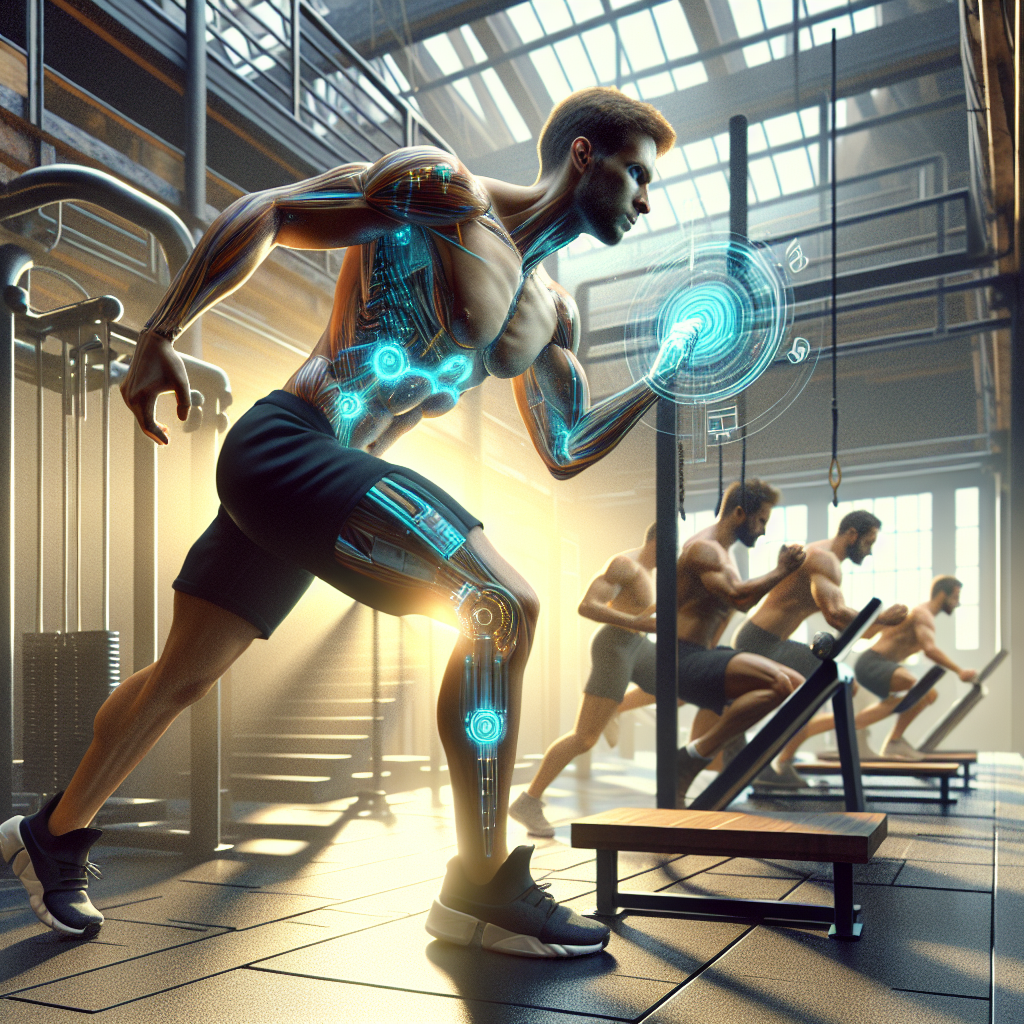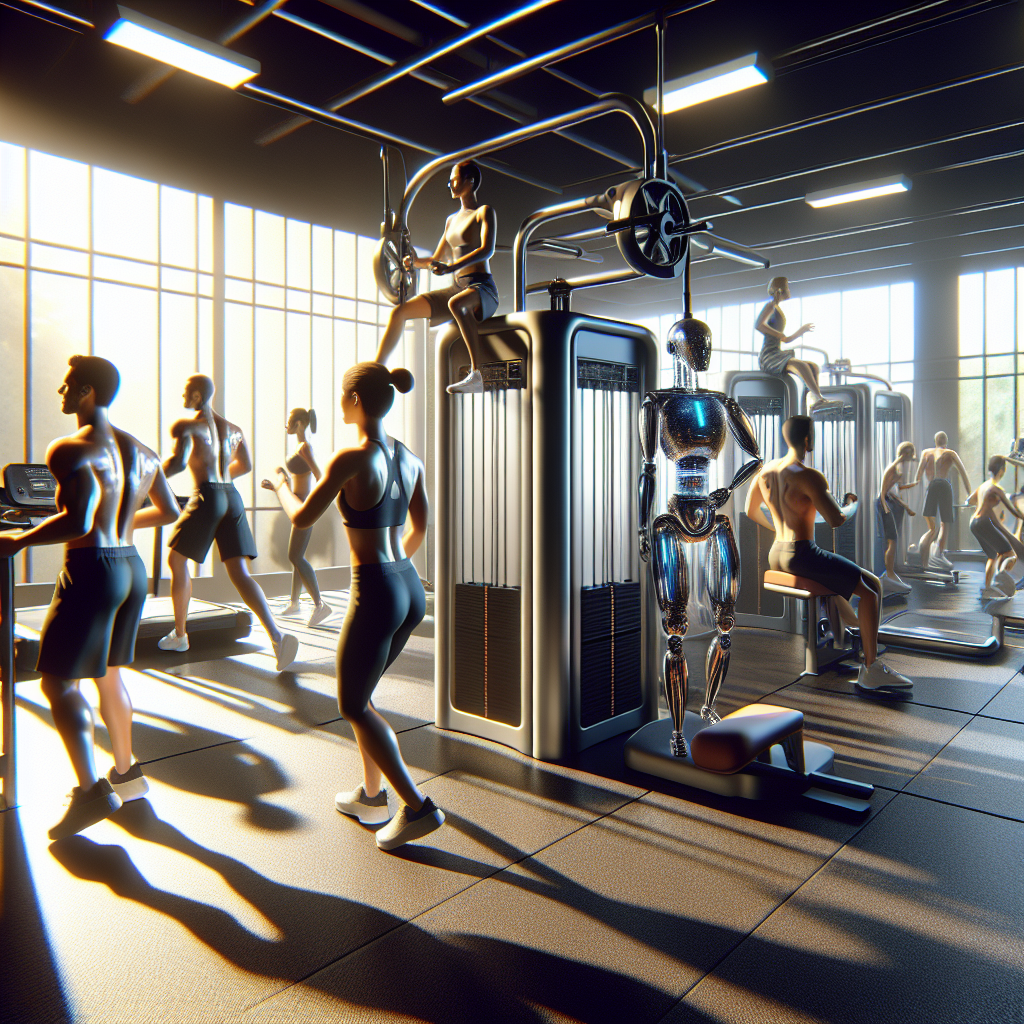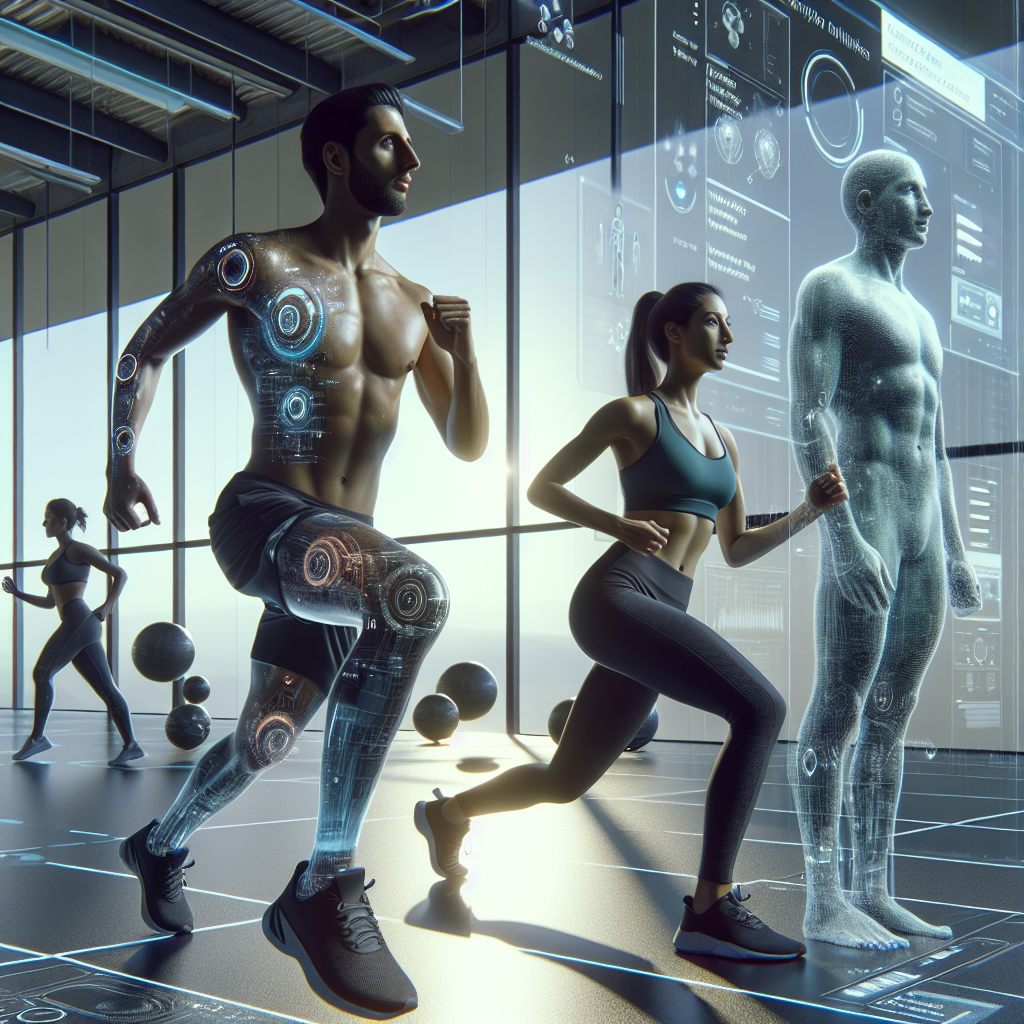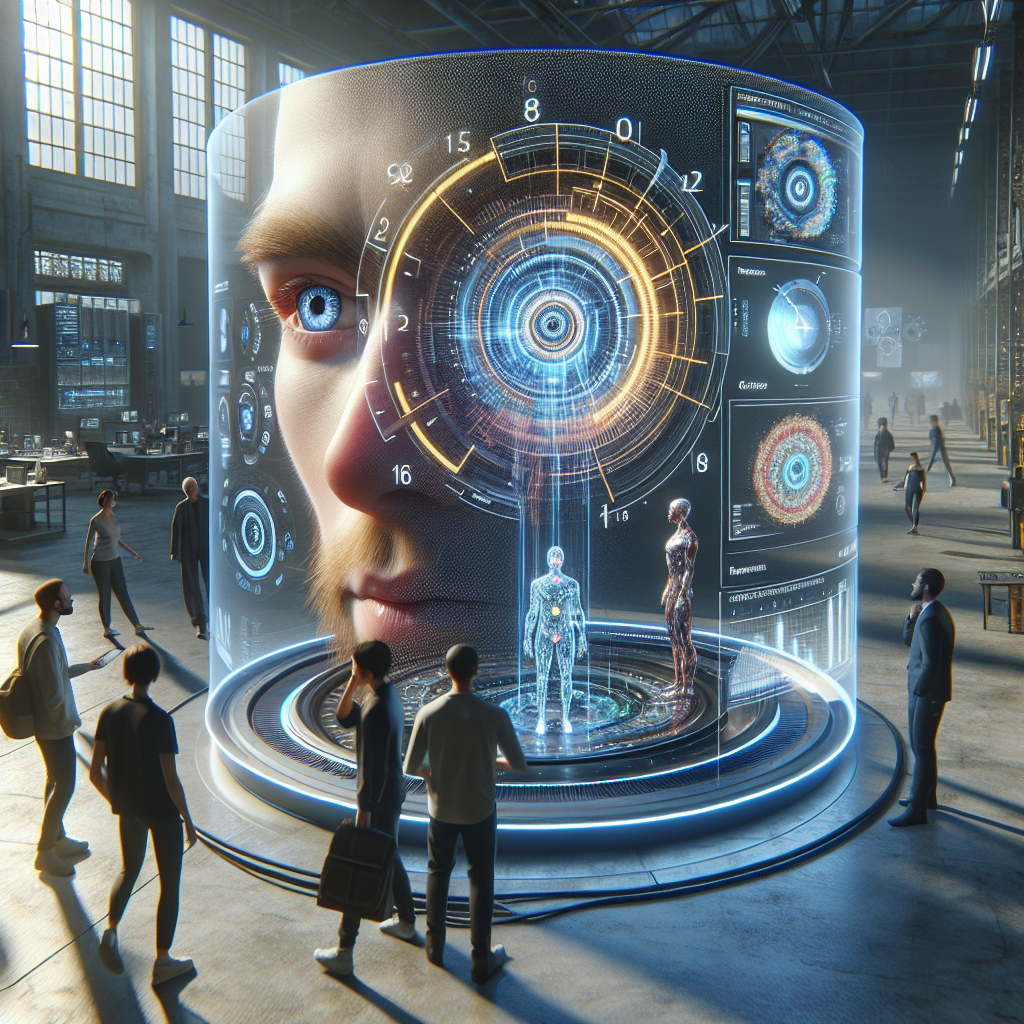AI fitness platforms are revolutionizing athlete training by providing personalized, data-driven insights that enhance performance, optimize workouts, and reduce injury risks. These platforms leverage advanced machine learning algorithms and data analytics to offer athletes tailored training plans, real-time feedback, and progress tracking, making them indispensable tools in modern sports training. By integrating artificial intelligence, athletes and coaches can make informed decisions, adapt strategies, and achieve peak performance levels efficiently.
The Evolution of Athlete Training Through AI
The landscape of athlete training has dramatically evolved over the years, with technology playing a pivotal role in this transformation. The introduction of Artificial Intelligence (AI) into fitness platforms has marked a significant turning point. These platforms utilize vast amounts of data to create personalized training regimens that align with an athlete’s specific needs and goals.
The Shift from Traditional to AI-Driven Training
Traditionally, athlete training was reliant on generic programs and the subjective judgment of coaches. While effective to some extent, these methods often lacked precision and adaptability. The advent of AI fitness platforms has addressed these limitations by offering:
- Personalized Training Plans: AI systems analyze individual performance data to tailor workout plans that suit each athlete’s unique physiological makeup.
- Real-Time Feedback: Through wearable technology and sensors, athletes receive immediate feedback, allowing for adjustments during workouts.
- Data-Driven Insights: AI platforms utilize big data to provide insights into areas such as recovery times, injury risks, and optimal training loads.
Key Technologies Driving AI Fitness Platforms
AI fitness platforms rely on several key technologies to provide their services:
- Machine Learning: Algorithms learn from vast datasets to make predictions and recommendations.
- Natural Language Processing (NLP): Enables platforms to interpret and respond to athlete queries naturally.
- Computer Vision: Analyzes video footage to assess form and technique.
- Wearable Sensors: Collect real-time data on performance metrics like heart rate and movement patterns.
How AI Fitness Platforms Enhance Athletic Performance
Personalized Training and Adaptation
One of the most significant advantages of AI fitness platforms is their ability to create personalized training programs. By analyzing an athlete’s historical performance data, the platform can adjust intensity, duration, and types of exercises to optimize results.
Dynamic Program Adjustments
Unlike static training plans, AI-driven programs are dynamic. They adjust based on:
- Performance Metrics: Ongoing assessment of speed, strength, and endurance.
- Recovery Data: Analysis of rest periods to prevent overtraining.
- Injury Risks: Modifying exercises if potential injuries are detected.
Injury Prevention and Management
Injury prevention is crucial for athletes aiming for long-term success. AI fitness platforms play a vital role in this by analyzing movement patterns and identifying potential risk factors. They offer:
- Predictive Analytics: Forecast potential injuries based on training loads and biomechanics.
- Recovery Optimization: AI suggests rest and rehabilitation exercises to facilitate recovery.
- Biomechanical Analysis: Evaluates movement to prevent improper form that could lead to injuries.
Enhancing Coaching Efficiency
AI platforms not only benefit athletes but also enhance coaching efficiency. Coaches can utilize AI insights to:
- Monitor Athlete Progress: Track athletes’ progress in real-time and adjust coaching strategies accordingly.
- Strategize Game Plans: Use data analytics to develop effective strategies based on opponents’ performance.
- Optimize Team Performance: Assess team dynamics and make data-driven decisions to improve overall performance.
The Role of AI in Nutrition and Recovery
Personalized Nutrition Plans
AI fitness platforms extend beyond training to include nutrition, a critical component of athletic performance. By analyzing dietary habits and metabolic rates, AI can offer personalized nutrition plans that enhance energy levels and recovery.
Metabolic Profiling
AI tools assess metabolic profiles to recommend:
- Customized Diet Plans: Tailored to individual caloric and macronutrient needs.
- Supplement Suggestions: Recommendations based on nutritional deficiencies and performance goals.
Optimizing Recovery Protocols
Recovery is as essential as training itself. AI platforms provide insights into optimal recovery protocols by:
- Tracking Sleep Patterns: Analyzing sleep quality to suggest improvements.
- Recommending Recovery Techniques: Such as stretching, hydration, and massage.
- Monitoring Heart Rate Variability (HRV): To assess recovery status and readiness for training.
Success Stories: AI in Action
Case Study: Elite Athletes and AI Integration
Many elite athletes and teams have successfully integrated AI platforms into their training regimens, resulting in improved performance and reduced injury rates. For example:
- Professional Football Teams: Utilize AI for game strategy development and player conditioning.
- Olympic Athletes: Employ AI to refine techniques and optimize training schedules.
- Endurance Runners: Use AI to manage pacing and recovery for peak performance.
Quantifying AI’s Impact: Data and Statistics
Research and data analysis have shown the significant impact of AI on athletic performance. Consider the following statistics:
| Category | Impact of AI |
|---|---|
| Injury Reduction | Up to 30% decrease in injury rates with AI monitoring |
| Performance Improvement | Average performance gains of 15% with AI-tailored programs |
| Recovery Efficiency | 20% faster recovery times with AI-optimized protocols |
The Future of AI in Athlete Training
Emerging Technologies and Trends
The integration of AI in athlete training is still in its early stages, with future innovations expected to bring even more transformative changes. Emerging trends include:
- Augmented Reality (AR): Enhancing training environments with virtual simulations.
- Advanced Wearables: More sophisticated sensors providing deeper insights.
- AI-Powered Coaching Assistants: Virtual assistants offering real-time guidance and strategies.
Challenges and Considerations
While AI fitness platforms offer numerous benefits, there are challenges and considerations to address:
- Data Privacy: Ensuring the security of sensitive athlete data.
- Technical Limitations: Addressing inaccuracies in data interpretation.
- Cost and Accessibility: Making AI technology affordable and accessible to all athletes.
Conclusion
AI fitness platforms are at the forefront of transforming athlete training, offering unprecedented levels of personalization, efficiency, and insight. As technology continues to evolve, these platforms will become even more integral to athlete development, enabling individuals and teams to reach new heights of performance while minimizing injury risks. The future of sports training is undeniably intertwined with AI, promising a new era of athletic excellence.
Transform Your Fitness Journey Today!
Discover the Future of Fitness with PurelyFit
Tired of the same old routines and seeing no results? It’s time to revolutionize your approach to fitness. With PurelyFit’s AI-powered workouts and personalized nutrition plans, you’ll achieve your goals faster and smarter. No expensive trainers, no confusing diet plans, and no gym required.
What’s Waiting for You:
– AI-driven workouts tailored to your unique goals.
– Access to over 600,000 recipes catering to every lifestyle and dietary need.
– Real-time progress tracking and adaptive plans to keep you on track.
Why Wait?
Experience the difference with PurelyFit and take the first step towards a healthier, fitter you. Join our community today and let AI guide your fitness journey!













